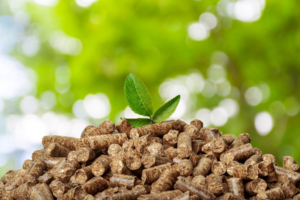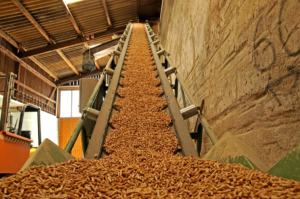Wooden Pallet Industry Approaching Zero Waste, Study Shows
Research shows that close to a whopping ninety-five percent of wooden pallets are recycled. We already know that wood pallets are 100% recyclable. Yet, thanks to a research project funded by the Pallet Foundation and the USDA Forest Service, the data shows just how well the wood packaging industry is doing by closing in on zero-waste.
The 95% recycle rate of wood pallets is the highest rate when compared to other packaging materials such as plastic, corrugated, or steel.
The 2018 research project, known as the landfill avoidance study, was based on surveys from pallet manufacturing and recycling facilities, and solid waste facilities. Spearheaded by the National Wooden Pallet and Container Association, NWPCA worked with Virginia Tech to complete a comprehensive and innovative study to determine how much wood packaging contributes to landfill waste. The results were astounding and revealed the significant progress made in recycling over the past two decades.
The study looked at both municipal and solid waste (MSW) and construction and demolition (C&D) landfill facilities to see how they handle and process wood packaging materials. The initial analysis examined the amount of wood material entering landfills, emphasizing the difference between arriving at a landfill, and entering a landfill. The data showed that the number of wood pallets entering MSW and C&D landfills shrunk dramatically between 1998 and 2016, decreasing from around 178.5 million in 1998 to 25.39 million in 2016.
Furthermore, the study showed that if wood packaging does make it to a landfill, it is often recovered and reused as a biodegradable material. The results also indicate that since 1998, facilities have increased their wood and wood pallet recovery areas. For MSW facilities, this number increased from 33% to 62% of facilities, while for C&D facilities, the number increased from roughly 27% to 45%. Reports also revealed that non-treated wood and wood pallets are often used as top-cover material for the landfill, using this biodegradable material for a sustainable solution.
In addition to this, the analysis found the number of separated and recycled pallets increased from about 38 million to 41 million. This difference indicates that landfills are expanding their efforts to recover and recycle wood pallets into other valuable products such as mulch, animal bedding, or biofuel.
In other words, wood packaging is the most sustainable choice. The study shows that the increased environmental awareness of companies and the emerging zero-landfill policies, which prevent companies from sending packaging materials to landfills, are making a difference.
Share the 2018 Landfill Avoidance survey results with your customers, including specific data charts.
Quick Stats
Only 1.8% of all wood landfilled by a MSW landfill and 5.6% landfilled by a C&D landfill were wood pallets
Only 25.39 million wooden pallets were landfilled in MSW and C&D landfills in 2016 compared to 178.5 million landfilled in 1998.
62.4% of the MSW and 45.2% C&D landfills operated wood recovery areas
95% pallets were recovered into usable materials.
Project Links & Contacts
The Pallet Foundation funds projects, such as the landfill avoidance survey, which benefit the wood packaging industry. This research was conducted in collaboration with three prominent groups: Virginia Tech, National Wooden Pallet & Container Association, and the U.S. Forest Service.
- Pallet Market Survey: Investigation of New and Recovered Wood Shipping Platforms in the United States: Peer-reviewed article in the Bioresources Journal. March 2020.
- Related Charts
The respective staff leads who provided oversight and co-authored this article are:
Acknowledgement
We would like to thank the hundreds of industry members who volunteered to take part in the survey, as well as the NWPCA Science and Technology Advisory Council and task group volunteers who contributed greatly to the development of the surveys. We would also like to recognize the efforts of Virginia Tech graduate students Nathan Gerber and Zach Shiner, and the guidance and insight provided by Phil Araman of the USDA Forest Service.
This research was funded in part by the NWPCA, the Pallet Foundation and the USDA Forest Service. The ongoing support of impactful research related to the wood pallet industry is greatly appreciated.





 Photography: Amy Coppersmith 2018
Photography: Amy Coppersmith 2018


























